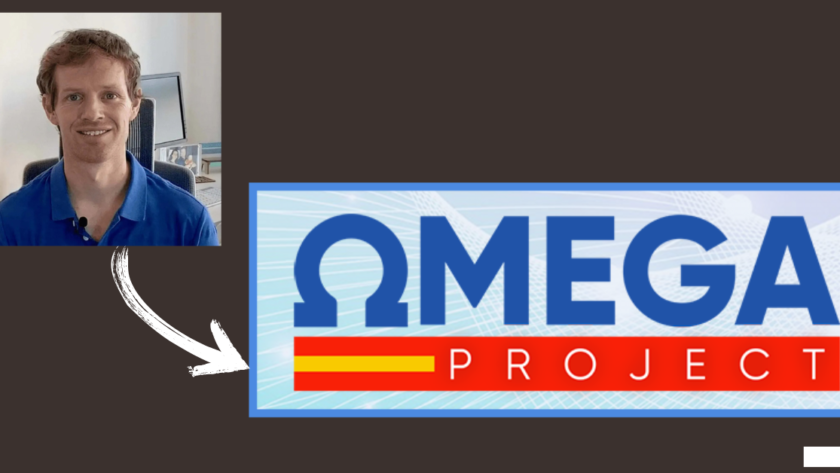I’ve been in the eCommerce game for over a decade, and I’ve seen countless “revolutionary” systems come and go. But when I first heard about Aidan Booth’s Omega Project 2025, I knew this was different.
This isn’t just another online business course – it’s a finish reimagining of how we approach eCommerce.
Who is Aidan Booth?
Aidan Booth isn’t your typical internet marketing guru. He’s been building successful online businesses since 2005, long before eCommerce became the buzzword it is today.
Back then, there was no Shopify, no easy Facebook ads, and certainly no Instagram influencers to boost your brand.
Booth had to learn everything from scratch, often through trial and error.
What sets Booth apart is his ability to adapt and evolve. He started with a focus on SEO when keyword stuffing was still considered a valid strategy (cringe-worthy, I know).
But as the digital landscape changed, so did his approach.
He expanded into paid traffic, diversified his marketing channels, and consistently stayed ahead of industry trends.
The Genesis of Omega Project 2025
The Omega Project 2025 is an 8-week training program that teaches a unique approach to eCommerce. But calling it just a “training program” doesn’t do it justice.
This system challenges some of the most basic assumptions in online retail.
For starters, the Omega Project doesn’t rely on Amazon. Amazon has long been the default platform for many online sellers, but it’s become increasingly competitive and complex.
Booth’s approach sidesteps these challenges entirely.
Perhaps the most impressive aspect of the Omega Project is that it eliminates the need for product development or upfront inventory investment. Anyone who’s tried to launch a product on Amazon knows how risky and expensive that can be.
Booth’s method avoids these traditional hurdles, making it accessible to a wider range of entrepreneurs.
The Omega Method: Step by Step
1. Domain Acquisition
The process starts with acquiring a high-quality generic domain name. Booth has developed a proprietary tool for this, which is crucial because the right domain can significantly impact your eCommerce success.
A good domain lends credibility to your store and can improve your search engine rankings.
2. Simple Store Setup
Next, you set up a basic store using a pre-loaded, high-converting theme. This step is designed to be straightforward, even for those without technical skills.
The focus is on functionality and conversion optimization rather than flashy design.
3. Product Selection
This is where the Omega Project really shines. Using specialized software, you can identify profitable products from millions of options.
The software analyzes market trends, competition, and potential profit margins to help you make informed decisions.
It’s like having a team of market researchers working around the clock.
4. Automated Listings
One of the most time-consuming aspects of traditional eCommerce is creating product listings. The Omega Project automates this process.
You can populate your store with product listings without creating a single image or writing a word of copy.
This automation saves countless hours and resources.
5. Traffic Generation
Booth teaches cost-effective and underutilized methods to drive instant traffic to your listings. This isn’t your typical Facebook ads strategy.
The Omega Project focuses on diversified traffic sources that are often overlooked by mainstream eCommerce sellers.
6. Dropshipping Fulfillment
By using dropshipping, you eliminate the need for inventory management. This means no worrying about storage costs or unsold stock.
The Omega Project emphasizes building strong relationships with reliable suppliers to confirm quality control and customer satisfaction.
7. Continuous Optimization
The final step is an ongoing process of keeping profitable products, removing underperformers, and scaling up operations. This data-driven approach ensures that your store stays profitable and competitive in the long term.
The Data-Driven Advantage
One of the cornerstones of the Omega Project is it’s relentless focus on data. Participants get access to a suite of tools and software that provide a significant competitive edge.
These include:
- Product databases with millions of items
- Identification tools to spot trending products
- A control center that helps you make informed decisions about inventory and pricing
This data-driven approach has helped many of Booth’s students outperform traditional eCommerce models, even beating some established Amazon sellers at their own game.
Addressing Challenges and Controversies
No impressive system comes without it’s share of challenges and controversies. The Omega Project is no exception.
Ethical Considerations of Dropshipping
Some critics argue that dropshipping isn’t a sustainable business model and can lead to poor customer experiences. Booth addresses this concern by emphasizing the importance of supplier relationships and quality control.
The Omega Project teaches students how to vet suppliers and maintain high standards of customer service.
Market Saturation Concerns
There’s a valid concern that if everyone uses the same method, it will become less effective over time. Booth counters this by pointing out that the eCommerce market is vast and constantly growing.
He argues that there’s plenty of room for new players, especially those who can adapt quickly to changing market conditions.
Standing Out in a Crowded Market
With so many online stores vying for attention, standing out can be challenging. The Omega Project’s approach to product selection and marketing aims to address this.
By focusing on data-driven decisions and underutilized traffic sources, Booth believes that Omega Project stores can carve out their own niches.
Adapting the Omega Method
One of the strengths of the Omega Project is it’s adaptability. While the core principles stay the same, you can tailor the approach to different niches and markets.
For example:
- Eco-Friendly Focus: You could use the Omega method to identify and market sustainable choices to everyday items.
- Local Market Adaptation: Apply the principles to a local market, combining online sales with local pickup options.
- Luxury Goods: Adapt the system to focus on high-end products with higher profit margins.
The key is understanding the underlying principles and applying them creatively to your specific situation.
From Basics to Mastery
The Omega Project caters to both eCommerce newbies and experienced sellers. It builds on basic eCommerce principles but takes them to a new level.
For instance, the concept of dropshipping isn’t new, but Booth’s approach to product selection and marketing changes it into a much more powerful strategy.
As you progress through the program, you’ll find yourself thinking about eCommerce in entirely new ways. The Omega Project teaches you to create a flexible, data-driven business that adapts to market conditions.
The Future of eCommerce According to Booth
Aidan Booth believes that the future of eCommerce comes from adaptability and data-driven decision-making. He predicts that successful online retailers will need to:
- Diversify beyond traditional platforms like Amazon
- Leverage AI and machine learning for product selection and pricing
- Focus on unique value propositions rather than competing solely on price
- Embrace omnichannel strategies that blend online and offline experiences
- Prioritize sustainability and ethical business practices
The Omega Project is designed to prepare entrepreneurs for this future, equipping them with the skills and tools needed to thrive in an ever-changing digital landscape.
Critiques and Limitations
While the Omega Project offers a compelling approach to eCommerce, it’s important to consider it’s limitations and potential drawbacks:
Learning Curve
The system relies heavily on data analysis and software tools. For those without a technical background, there may be a steep learning curve.
Initial Investment
While the Omega Project eliminates the need for inventory investment, there are still costs associated with the training program, software tools, and advertising.
Market Volatility
The eCommerce landscape is constantly changing. Strategies that work today may become less effective in the future, requiring constant adaptation.
Dependence on Suppliers
The dropshipping model means you’re reliant on third-party suppliers. This can sometimes lead to quality control issues or shipping delays.
Scalability Challenges
As your business grows, you may face challenges in maintaining the same level of profitability and efficiency.
The Psychological Impact of the Omega Approach
One often overlooked aspect of the Omega Project is it’s psychological impact on entrepreneurs. Traditional eCommerce models can be stressful, with concerns about inventory management, product development, and market saturation.
The Omega approach alleviates many of these stressors:
Reduced Financial Risk
By eliminating the need for upfront inventory investment, the Omega Project reduces financial anxiety. This allows entrepreneurs to focus on strategy and growth rather than worrying about unsold stock.
Data-Driven Confidence
The emphasis on data analysis gives Omega Project users more confidence in their decision-making. Instead of relying on gut feelings or guesswork, they have concrete data to back up their choices.
Flexibility and Adaptability
The Omega approach encourages a mindset of constant adaptation. This can lead to greater resilience in the face of market changes and a more innovative approach to problem-solving.
Work-Life Balance
The automated aspects of the Omega Project, such as product listing creation, can lead to better work-life balance. Entrepreneurs can focus on high-level strategy rather than getting bogged down in time-consuming tasks.
Environmental and Social Considerations
As eCommerce continues to grow, it’s important to consider it’s environmental and social impact. The Omega Project offers some interesting perspectives on these issues:
Reduced Waste
By using a dropshipping model, the Omega Project can potentially reduce waste associated with unsold inventory. This aligns with growing consumer demand for more sustainable business practices.
Support for Small Manufacturers
The data-driven product selection process can help identify products from smaller manufacturers that might otherwise be overlooked. This can support a more diverse and resilient supply chain.
Ethical Considerations
The Omega Project emphasizes the importance of vetting suppliers, which can include assessing their labor practices and environmental policies. This encourages a more ethical approach to eCommerce.
Local Economic Impact
By enabling entrepreneurs to start eCommerce businesses with lower barriers to entry, the Omega Project could potentially contribute to local economic development, especially in areas with limited job opportunities.
The Role of Community in Omega Project Success
One of the underappreciated aspects of the Omega Project is the community that has formed around it. This community plays a crucial role in the success of person entrepreneurs:
Knowledge Sharing
Omega Project participants often share their experiences, successes, and failures. This collective wisdom can be invaluable, especially for newcomers to eCommerce.
Networking Opportunities
The community provides networking opportunities that can lead to partnerships, joint ventures, or simply moral support during challenging times.
Continuous Learning
As the eCommerce landscape evolves, the Omega Project community serves as a hub for continuous learning. Members share new strategies, tools, and market insights.
Accountability
Many Omega Project users form accountability groups, helping each other stay on track with their business goals.
Preparing for Future Challenges
While the Omega Project offers a powerful approach to eCommerce, it’s important to prepare for future challenges. Here are some areas to watch:
Regulatory Changes
As eCommerce grows, regulations around online sales, data privacy, and cross-border transactions are likely to evolve. Stay informed about these changes and be prepared to adapt your strategies accordingly.
Technological Advancements
Keep an eye on emerging technologies like augmented reality shopping, blockchain for supply chain management, and advanced AI. These could significantly impact how eCommerce operates in the future.
Changing Consumer Behavior
Consumer preferences and shopping habits are constantly evolving. Stay attuned to these changes and be ready to adapt your product offerings and marketing strategies.
Competition from Big Tech
As companies like Google and Facebook expand their eCommerce offerings, small and medium-sized businesses may face new challenges. Diversifying your traffic sources and focusing on niche markets can help mitigate this risk.
Key Takeaways
- The Omega Project 2025 represents a paradigm shift in eCommerce, challenging traditional models and eliminating the need for upfront inventory investment.
- Aidan Booth’s approach focuses on data-driven decision-making, automated processes, and underutilized traffic sources.
- The system is adaptable to various markets and niches, making it suitable for both new and experienced eCommerce entrepreneurs.
- While the Omega Project offers many advantages, it’s important to be aware of potential challenges such as market volatility and dependence on suppliers.
- The psychological benefits of the Omega approach, including reduced financial stress and increased confidence, contribute to it’s effectiveness.
- Environmental and social considerations are increasingly important in eCommerce, and the Omega Project offers ways to address these concerns.
- The community aspect of the Omega Project plays a crucial role in knowledge sharing and continuous learning.
- Preparing for future challenges, including regulatory changes and technological advancements, is essential for long-term success in eCommerce.
- The Omega Project emphasizes adaptability and continuous optimization, key traits for thriving in the ever-changing world of online retail.
Frequently Asked Questions
What is the Omega Project 2025?
The Omega Project 2025 is an innovative eCommerce training program developed by Aidan Booth. It teaches a unique approach to online retail that eliminates the need for inventory investment and focuses on data-driven decision-making.
How is the Omega Project different from traditional eCommerce models?
The Omega Project differs from traditional eCommerce models by focusing on dropshipping, automated product listing, and underutilized traffic sources. It also emphasizes data analysis for product selection and optimization.
Do I need technical skills to succeed with the Omega Project?
While some technical skills are helpful, the Omega Project is designed to be accessible to entrepreneurs with varying levels of technical expertise. The program provides tools and training to help you navigate the technical aspects of eCommerce.
How much does it cost to start an eCommerce business using the Omega Project method?
The initial costs include the training program fee and expenses for tools and advertising. However, the Omega Project eliminates the need for upfront inventory investment, potentially reducing overall startup costs compared to traditional eCommerce models.
Can the Omega Project be used for physical products only, or does it work for digital products too?
While the Omega Project primarily focuses on physical products, it’s principles can be adapted for digital products as well. The data-driven approach to market research and traffic generation can be valuable for any type of online business.
How long does it typically take to see results with the Omega Project?
Results can vary depending on factors such as niche selection, marketing efforts, and person dedication. Some users report seeing initial sales within weeks, while others may take a few months to gain traction.
Is the Omega Project suitable for international markets?
Yes, the Omega Project can be adapted for international markets. The data-driven approach allows you to identify profitable products and marketing strategies for specific countries or regions.
How does the Omega Project handle customer service and returns?
The Omega Project teaches strategies for managing customer service and returns in a dropshipping model. This includes building strong relationships with suppliers and implementing efficient customer service systems.
Can I use the Omega Project alongside my existing eCommerce business?
Absolutely. Many entrepreneurs use Omega Project principles to complement their existing eCommerce operations.
The data-driven strategies can be applied to improve product selection and marketing for any online store.
What kind of ongoing support is available for Omega Project users?
The Omega Project includes access to a community of users, regular updates, and ongoing support from Aidan Booth and his team. This ensures that users can stay up-to-date with the latest eCommerce trends and strategies.




